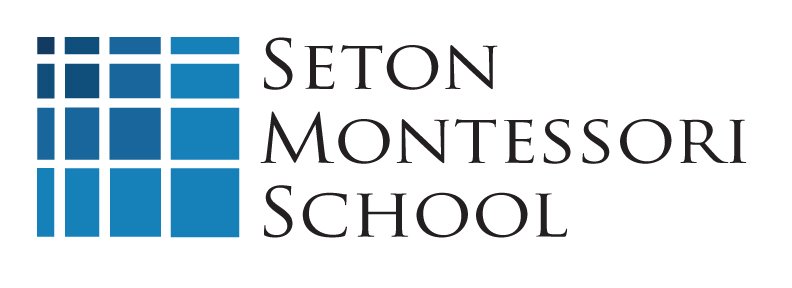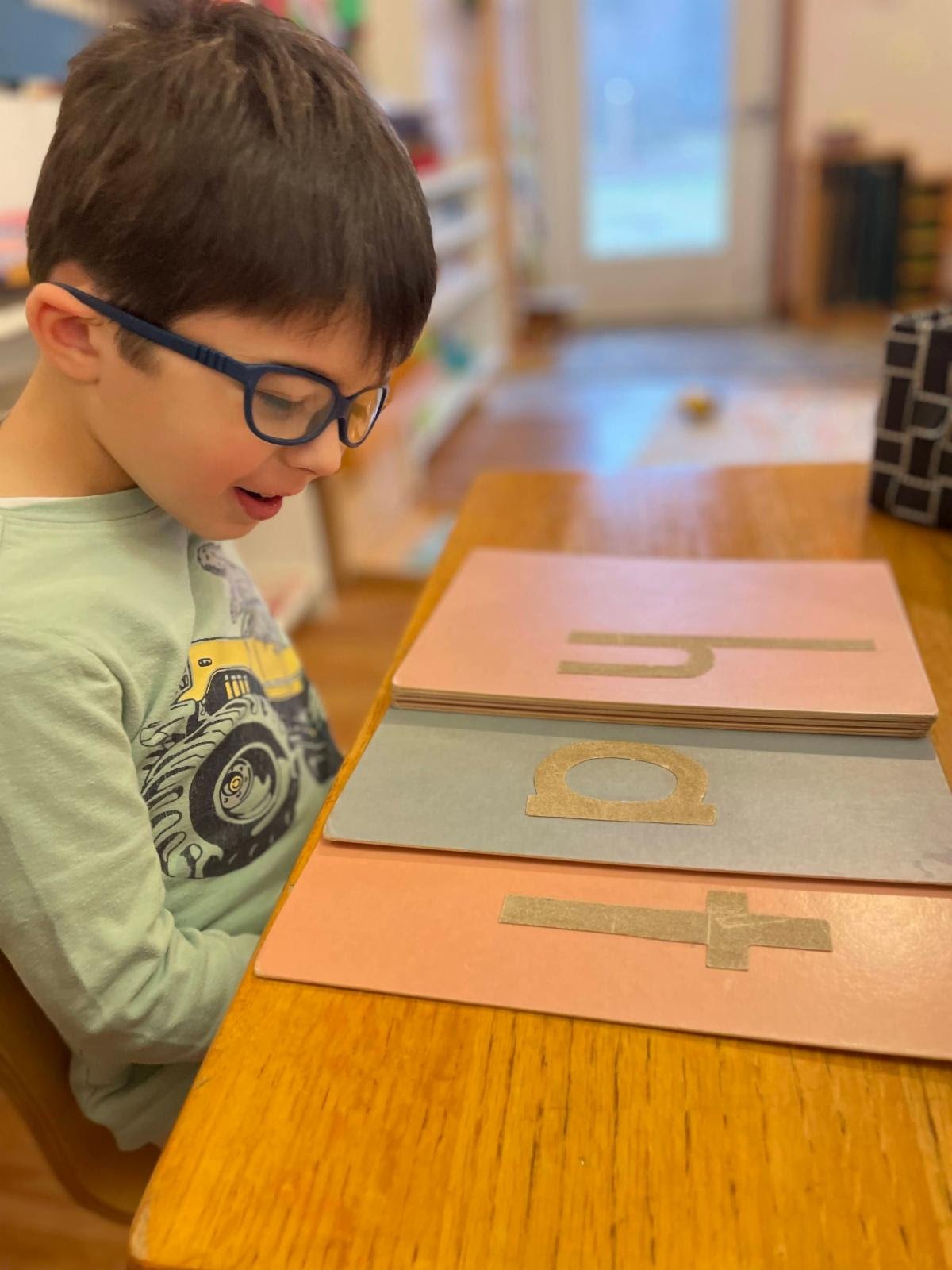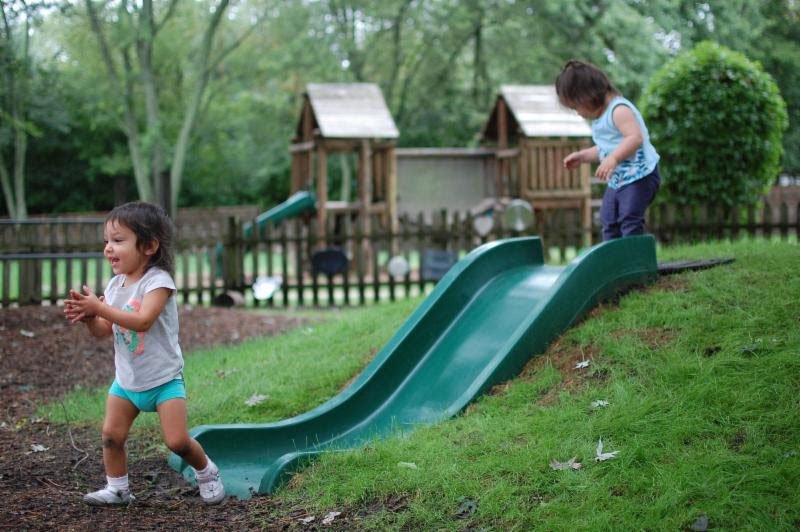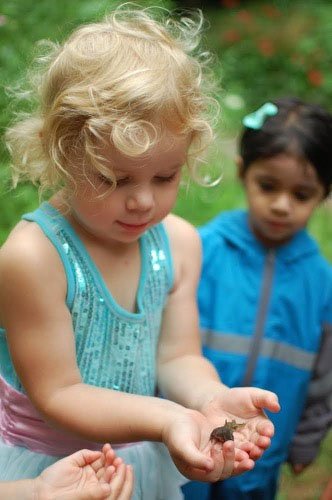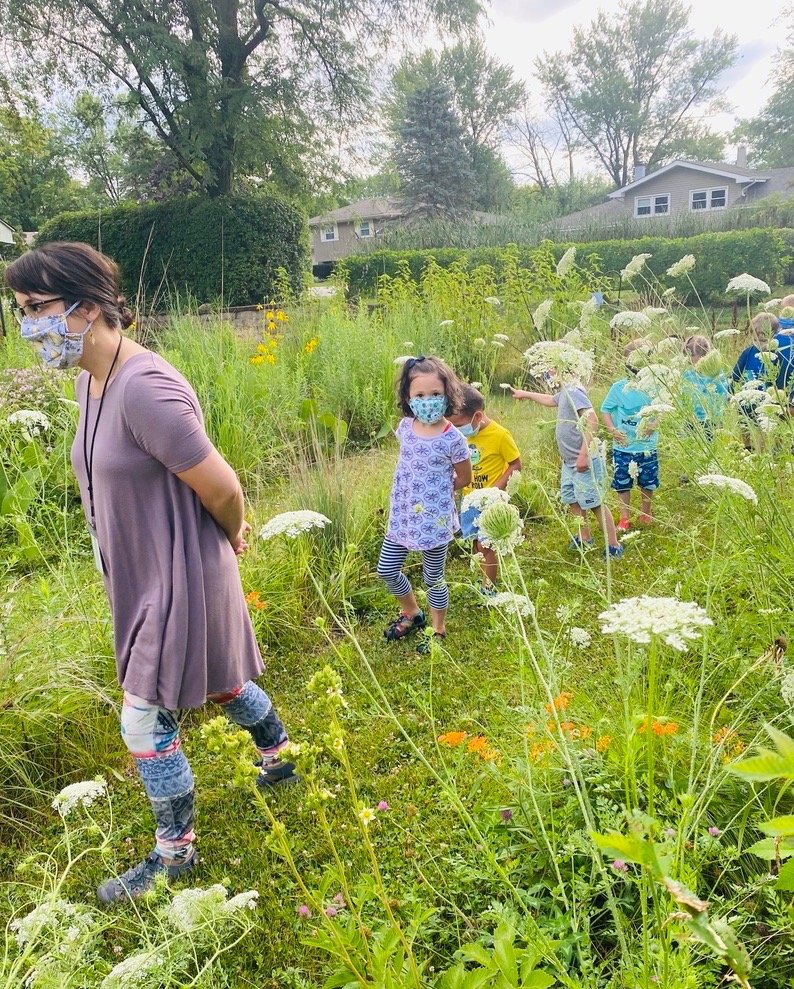
Our Programs
Montessori Basics
⟡
The learning curriculum includes planned activity in everyday living skills, sensorimotor development, language arts, mathematical thinking, and cultural subjects. Children enjoy interacting with nature and engaging in music, movement, and art as well.
⟡
Seton’s Montessori classroom environments are based on a dynamic blend of freedom and structure. Children are encouraged to choose their activities from among a wide variety of prepared materials in a carefully planned and structured environment. The emphasis is on cultivating awareness, independence, and responsibility in a multi-age community.
⟡
Seton’s educators see themselves as guides and facilitators of children’s learning. Teachers prepare the learning environment, assist children in making choices and introducing them to materials, and observe and record progress in order to better follow the interests and needs of each individual child.
Learning Environments
At the heart of Maria Montessori’s philosophy was the idea that we should prepare exciting, interactive, and comforting environments for our children. At Seton, we accept this wisdom and seek to build on it by providing dynamic learning to serve today’s child. Additionally, our expansive outdoor space provides for new environments to be explored. In sum, Seton strives to create environments that serve the child’s natural interest and learning potential.
Frequently Asked Questions
-
The Montessori approach is a system of education that is both a philosophy of child growth and a rationale for guiding such growth. It is based on the child’s developmental needs, exposure to materials, and experiences through which to develop intelligence as well as physical and psychological abilities. Children need adults to expose them to the possibilities of life, but children themselves must direct their response to those possibilities. The premises of Montessori education are:
Children are to be respected as different from adults and as individuals who differ from each other.
Children possess unusual sensitivity and mental abilities for absorbing and learning from their environment that are unlike those of the adult both in quality and capacity.
The most important years of growth are the first six years of life when unconscious learning is gradually brought to the conscious level.
Children have a deep love and need for purposeful work. They work, however, not as an adult for profit and completion of a job, but for the sake of the activity itself. It is the activity which accomplishes the most important goal of the child: the development of the self, inclusive of mental, physical, and psychological powers.
-
The Montessori approach has been used successfully with children up to eighteen years of age from all socioeconomic levels, representing those in typical classes as well as those who are academically gifted, have learning differences and/or are physically impaired. Because of its individual approach, Montessori education is uniquely suited to educating children of differing needs, temperaments and abilities.
-
Children are free to move about the classroom, to talk to other children, to work with any equipment or material whose purpose they understand, or to ask the teacher to introduce a new material. The teacher observes the child, noting needs and interests. The educator then uses these observations to facilitate learning by guiding the children toward those activities that will best serve their development. The child is not free to disturb other children at work or to misuse the equipment that is so important to their development. We call this attitude “freedom within limits”.
-
The goal of Montessori education is multi-faceted: it encourages self-discipline, self-knowledge and independence; it nurtures a curiosity that results in an enthusiasm for learning; and it provides an organized and developmentally appropriate approach to problem solving and academic skill development.
-
Most children adjust readily to new classroom situations. In all likelihood this is because they have developed self-discipline and independence in the Montessori environment, as well as a foundational ability to approach learning in a variety of ways.
-
Curriculum in a multi-age setting is not static; older students can delve as far into a subject as they are able to, while younger students explore subjects at their own level. Older students also “learn what they know” while gaining self-esteem in the role of mentor to the younger students and naturally develop leadership skills as they assist children of all ages.
-
No. Montessori is a philosophy and method of education, not a franchise. Each school operates independently. Seton Montessori School is unique in its relationship with the Seton Montessori Institute Teacher Education Program as a lab school, in the way it interprets this philosophy for the community it serves, and in its leadership, vision, staff credentials and stability. Seton Montessori is an accredited school of the American Montessori Society.
-
No. However, there is a spiritual component to the Montessori philosophy which recognizes and respects the whole child, including an inner self, where issues of character and civic virtues reside and require development.
Our Goals for Your Children (Based on AMS Learner Outcomes)
As an accredited American Montessori Society school, Seton Montessori is committed to providing learning experiences and environments that nurture the development of the AMS Learner Outcomes of independence, confidence and competence, autonomy, intrinsic motivation, social responsibility, academic preparation, spiritual awareness and global citizenship.
-
Academic Preparation: Academic preparation entails providing students with skills that allow them to become independently functioning adults and lifelong learners. As students master one level of academic skills, they are able to go further and apply themselves to increasingly challenging materials across various academic disciplines. Students recognize that there is always room to grow in their abilities to read, write, speak, and think clearly and thoughtfully. Children learn by doing. They are encouraged to explore materials, integrate new concepts, analyze data, and think critically. Academic skills are essential to the process of learning and knowing.
These observable skills are evidence of students’ academic preparation: Do students acquire academic skills and apply them to their learning strategies? Do they demonstrate curiosity and interest in learning about the world around them? Do they connect concepts previously learned with new learning? Does it draw them forward?
Intrinsic Motivation: Intrinsic motivation is the innate desire that drives a child to engage in an activity for enjoyment and satisfaction.
These observable skills are evidence of students’ intrinsic motivation: Is the student drawn to continue working for the apparent pure pleasure of doing so? Does the student, once having achieved a particular competence, show confidence in accomplishments by sharing it with others?
Ability to Handle External Authority: The student is able to accept the ground rules established by external authority as appropriate boundaries in interactions within the school community. These ground rules are internalized, enabling the student to function with or without the presence of the external authority.
These observable skills are evidence of students’ social responsibility: Do students willingly cooperate with the guidelines of the community? Do they receive lessons when invited? Modulate work choices with consultation? Do they comply with safety commands?
Creativity and Originality of Thought: Students use the knowledge and skills they have acquired to express their own ideas and creativity with confidence. They recognize the value of their own ideas, respect the creative process of others, and are willing to share regardless of risk. Students find joy and satisfaction in self-expression.
These observable skills are evidence of students’ creativity and originality of thought: Is the student comfortable sharing their thoughts and ideas in conversation or as represented in their work? Can the student make independent work or play choices despite the influence of others? Can the student listen to, respect and accept differences of opinion? Is the student growing in confidence to share their sense of themselves and the world?
Social Responsibility: Social responsibility requires awareness that one’s actions have an impact on the welfare of the group and that one cannot attain complete independence and autonomy until one contributes constructively in a group process. Individuals are able to make a positive contribution to his or her community and groups within that community.
These observable skills are evidence of students’ social responsibility: Do students willingly cooperate with the guidelines of the community? Does the student attain independence and autonomy and, at the same time, develop social responsibility? Does the student grow in an awareness and desire to respond to the needs of others? Does the student offer care for environmental needs or the needs of other people, both within the school and beyond?
Independence and Autonomy: The autonomous child is self-directed, composed, and morally independent.
These observable skills are evidence of students’ autonomy: Are students able to hone their collaboration, cooperation, and negotiation skills in working through choices of partners for both work and play? Can the student accept or reject inclusion in another student's work or play group with equanimity?
Confidence and Competence: The confident and competent child perceives themself as being successful, has a realistic understanding of accomplishment, and has the ability to learn from mistakes. Competence is the capability for success through risk-taking, reflection, and self-correction.
These observable skills are evidence of students’ confidence and competence: Are the student's self-perceived successes far more numerous than self-perceived failures? Is the student capable of self-correcting work upon observation, reflection, or discussion? Can the student manage the available array of tasks and activities with a clear sense of purpose?
Spiritual Awareness: Spiritual awareness is embodied in the child who is compassionate, empathetic, and sensitive to the natural world and the human condition.
These observable skills are evidence of students’ spiritual awareness: Does the student grow in awareness that every living thing has a meaningful function in the larger system of society? Does the student grow in builds and maintains congenial relationships? Work amiably with various ages? Actively participate in reconciliation? Is the student open to people of differing races, genders, religions, ethnicities, and family structures?
